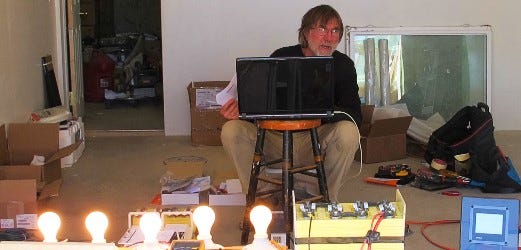Texas-Mark
Solar Addict
- Joined
- Aug 4, 2021
- Messages
- 1,284
Sure whatever floats your boat.
I guess you have not read all of the horror stories here of receiving damaged batteries, etc. <shrug>
Besides, I can just zip over to Houston and see what I am buying in person.



